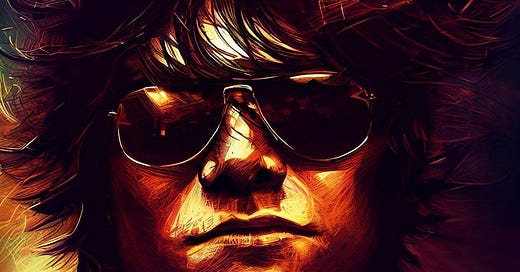Rocking the Soviet Soul: The Enigmatic Life of Viktor Tsoi and the Korean Connection
Viktor Tsoi, the legendary frontman of the Soviet rock band Kino, remains an enigmatic figure in the world of music. His powerful lyrics and magnetic stage presence continue to captivate fans, even decades after his untimely death. In this article, we'll explore the fascinating life of Viktor Tsoi, delving into his Korean roots and shedding light on the journey that led Koreans to settle in the Soviet Union.
A Star is Born: The Early Life of Viktor Tsoi
Born in Leningrad (now St. Petersburg) in 1962, Viktor Tsoi was the son of a Soviet Korean father and a Russian mother. His father, Robert Tsoi, was a descendant of the Koryo-saram, an ethnic Korean community that had migrated to the Soviet Union in the early 20th century. Growing up in a multicultural household, Viktor was exposed to a rich tapestry of cultural influences, which would later inform his music and artistic sensibilities.
The Korean Connection: A Brief History of Koryo-saram in the Soviet Union
The story of the Koryo-saram in the Soviet Union is a fascinating tale of migration, resilience, and cultural adaptation. In the early 20th century, thousands of ethnic Koreans from the Russian Far East and Korean Peninsula moved to the Soviet Union, seeking refuge from Japanese colonial rule and economic hardship. Initially welcomed as fellow comrades in the communist struggle, the Koryo-saram community faced a series of challenges, including forced deportation to Central Asia under Stalin's regime. Despite these hardships, the Koryo-saram persevered, forging a unique identity that combined their Korean heritage with Soviet values.
The Rise of a Rock Icon: Viktor Tsoi and the Formation of Kino
Viktor Tsoi's passion for music was ignited at an early age, as he taught himself to play the guitar and began writing songs. In 1981, Tsoi formed the band Kino, which would go on to become one of the most influential acts in the Soviet rock scene. With their poignant lyrics and raw sound, Kino quickly gained a devoted following, with Tsoi's enigmatic stage presence and distinct vocal style propelling the band to stardom.
Breaking the Sound Barrier: Kino's Impact on Soviet Culture
In an era marked by strict censorship and political repression, Kino's music resonated deeply with a generation of young Soviets who craved freedom and self-expression. Tsoi's lyrics, which often touched on themes of love, loneliness, and existentialism, offered a powerful outlet for those seeking to make sense of their place in a rapidly changing world. Through their music, Kino helped to redefine the boundaries of artistic expression in the Soviet Union, inspiring a new wave of musicians and fans alike.
A Life Cut Short: The Tragic Death of Viktor Tsoi
In 1990, at the age of 28, Viktor Tsoi's life was tragically cut short in a car accident. His untimely death sent shockwaves through the Soviet music scene, with fans mourning the loss of a beloved icon. Today, Tsoi's legacy lives on, as his music continues to inspire new generations of artists and listeners worldwide.




